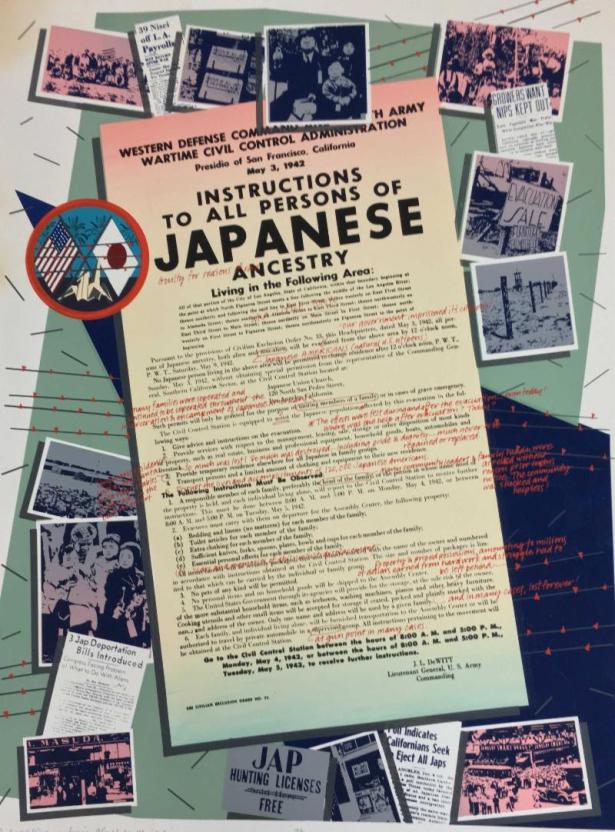|
Redress/Reparation Now!
Qris Yamashita
Little Tokyo Art Workshop
Silkscreen, 1983
Los Angeles, CA
22800
|
|
Executive Order No. 9066, issued on February 19, 1942, deported more than 110,000 persons of Japanese ancestry into ten concentration camps (euphemistically referred to as "internment camps"), throughout the Western US. Fred Korematsu, a Japanese-American living in California, refused to relocate and remained at home. When he was arrested and convicted of violating the Executive Order, he argued that it violated the Fifth Amendment. On December 18, 1944, the US Supreme Court upheld Korematsu v. United States, arguing that the Executive Order did not show racial prejudice and was necessary for national security.
Seventy-four years later, on June 26, 2018, the Supreme Court, mirrored the same racism and xenophobia in upholding Trump's Muslim Travel Ban in Hawaii vs. Trump. Hawaii vs.Trump legalized banning people from five predominantly Muslim countries from entering the US. Just as in the Korematsu case, the Court's majority claimed that there were no racial undertones and that Trump's Executive Action showed no racial prejudice.
In Justice Sonia Sotomayor's dissent, she wrote, "By blindly accepting the Government's misguided invitation to sanction a discriminatory policy motivated by animosity toward a disfavored group, all in the name of a superficial claim of national security, the Court redeploys the same dangerous logic underlying Korematsu and merely replaces one; gravely wrong' decision with another."
Qris Yamashita's Redress/Reparation Now!, reproduces Executive Order 9066, and covers it with editorial comments, photos of the forced relocation, and some of the racist sign produced during WWII.
Deplorably, legalized racial profiling continues today.
|


Spread the word